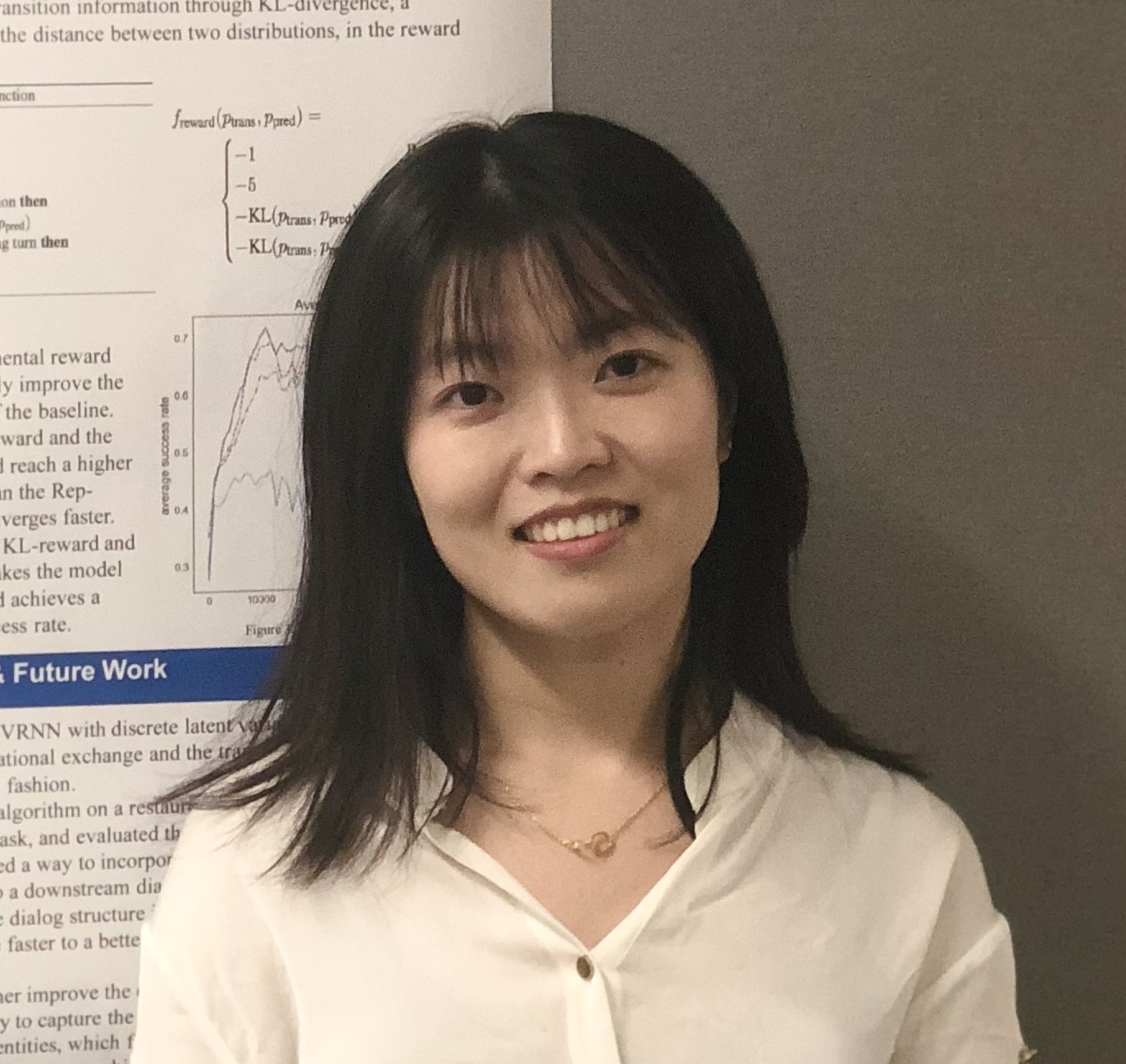- (3/21) Check out the takeaways from WMAC 2025.
t :::info
- (3/5) Thank you to all in-person and virtual participants who joined WMAC 2025. We had a great time in Philadelphia with 7 inspiring talks and 14 posters fully leveraging the space, with insightful break-time conversations throughout the workshop room. Special thanks go to the presenters and participants who traveled across the globe to attend this workshop. Please take a moment to help us by filling out a brief survey: here.
- (2/8) Updated accepted papers for WMAC 2025.
- (1/6) Updated with full information of accepted papers and invited speakers. We will update the workshopagenda soon.
- (12/17) All paper decisions and reviews have been released. For accepted papers, we will send out another email notifying the presentation format and camera-ready deadline. Please note that early registration of AAAI 2025 is now open until 12/19 (11:59 PM ET), please take your time to register. Make sure your registration covers the workshop session for WMAC 2025. For students presenting at the workshop, if you require waiver of the workshop registration fee, please contact us.
- (12/1) To reviewers: Review deadline is Dec 13th. Please let us know if you cannot submit your review by then.
- (11/30) We have assigned reviewers for the submitted papers. Reviewers will be notified via email, review deadline is Dec 13th.
- (11/24) Due to multiple requests, we decided to extend the submission deadline by 3 days to November 27th (AOE). The date for notification of acceptance is also adjusted accordingly.
- (11/22) Please contact pc@multiagents.org if you have any question on submission.
- (11/20) We updated invited speakers for the workshop and added notes for submission.
- (11/13) We updated invited speakers for the workshop. :::
WMAC 2025: AAAI 2025 Workshop on Advancing LLM-Based Multi-Agent Collaboration
We invite participants to the AAAI 2025 Workshop on Advancing LLM-Based Multi-Agent Collaboration, to be held in Philadelphia during the AAAI 2025 conference on March 4, 2025. Workshop room is Room 123.
Overview:
This full-day workshop seeks to ignite discussion on cutting-edge research areas and challenges associated with multi-agent collaboration driven by large language models (LLMs). As LLMs continue to showcase the ability to coordinate multiple AI agents for complex problem-solving, the workshop will delve into pivotal open research questions that advance the understanding and potential of LLM-based multi-agent collaboration.
We welcome submissions on topics including, but not limited to:
- Multi-agent collaboration structures, hierarchy and decision making
- Cross-agent knowledge sharing
- Inter-agent communication protocols
- Distributed and decentralized agents
- Multi-agent group behavior learning
- Strategic planning for multi-agent problem-solving
- Guardrails and responsible behaviors in multi-agent systems
Important Dates:
Submission deadline: November 24, 2024 AOE -> November 27, 2024 AOEPaper Review Deadline: December 13, 2024Notification of acceptance: December 9, 2024 -> December 16, 2024Paper link submission deadline: January 31, 2025- Workshop date: March 4th
Invited Speakers
Following are confirmed invited speakers, ordered by last name:

Vivian Chen
Professor, National Taiwan University
Yun-Nung (Vivian) Chen is currently a professor in the Department of Computer Science & Information Engineering at National Taiwan University. She earned her Ph.D. degree from Carnegie Mellon University, where her research interests focus on spoken dialogue systems and natural language processing. She was recognized as the World's Top 2% Scientists in her 2023 impact, the Taiwan Outstanding Young Women in Science and received Google Faculty Research Awards, Amazon AWS Machine Learning Research Awards, MOST Young Scholar Fellowship, and FAOS Young Scholar Innovation Award. Her team was selected to participate in the first Alexa Prize TaskBot Challenge in 2021. Prior to joining National Taiwan University, she worked in the Deep Learning Technology Center at Microsoft Research Redmond.

Kyunghyun Cho
Professor, New York University
Kyunghyun Cho is a professor of computer science and data science at New York University and an executive director of frontier research at the Prescient Design team within Genentech Research & Early Development (gRED). He is also a CIFAR Fellow of Learning in Machines & Brains and an Associate Member of the National Academy of Engineering of Korea. He served as a (co-)Program Chair of ICLR 2020, NeurIPS 2022 and ICML 2022. He is also a founding co-Editor-in-Chief of the Transactions on Machine Learning Research (TMLR). He was a research scientist at Facebook AI Research from June 2017 to May 2020 and a postdoctoral fellow at University of Montreal until Summer 2015. He received the Samsung Ho-Am Prize in Engineering in 2021.

Zora Wang
PhD Candidate, Carnegie Mellon University
Zora Zhiruo Wang is a PhD candidate at Carnegie Mellon University, Language Technologies Institute, advised by Professors Graham Neubig and Daniel Fried. Her research interest is using programmatic approaches to solve real-world digital problems such as building intelligent agents. Her recent work focuses on building adaptive agents that learn and apply increasingly complex knowledge and skills. Prior to CMU, she has worked on knowledge intelligence at Microsoft Research, Asia. She has presented her work at and served as reviewers for top-tier NLP/ML conferences including NeurIPS, ICLR, ACL, EMNLP, and KDD. She has co-organized the Deep Learning for Code (DL4C) at ICLR and the first Agent Workshop at CMU; and has given tutorials about "Language Models for Tabular Data" at SIGIR.

Katia Sycara
Professor, Carnegie Mellon University
Katia Sycara holds the Edward Fredkin Research Chair in Robotics at the School of Computer Science at Carnegie Mellon University and is Associate Director for Faculty at the Robotics Institute. For the past 5 years she was the Director of the AFOSR Center of Excellence for Trustworthy Autonomy. Her research interests are in AI/ML, multi-agent and multi-robot systems, human robot teaming. She is a Fellow of IEEE, Fellow of the AAAI, and the recipient of the ACM/SIGART Agents Research Award and the INFORMS Lifetime Research Award. She has received 2 Influential 10-year paper awards and multiple best paper awards.
Accepted Papers
Oral Presentations
Improving Multi-Agent Debate with Sparse Communication Topology
Yunxuan Li, Yibing Du, Jiageng Zhang, Le Hou, Peter Grabowski, Yeqing Li, Eugene Ie
Talking Vehicles: Cooperative Driving via Natural Language
Jiaxun Cui, Chen Tang, Jarrett Holtz, Janice Nguyen, Alessandro G Allievi, Hang Qiu, Peter Stone
Aligning Compound AI Systems via System-level DPO
Xiangwen Wang, Yibo Jacky Zhang, Zhoujie Ding, Katherine Tsai, Sanmi Koyejo
Poster Presentations
InvAgent: A Large Language Model based Multi-Agent System for Inventory Management in Supply Chains
Yinzhu Quan, Zefang Liu
"I apologize for my actions": Emergent Properties and Technical Challenges of Generative Agents
N'yoma Diamond, Soumya Banerjee
Agentic AI Multi-Agent Interoperability Extension for Managing Multiparty Conversations
Diego Gosmar, Deborah A. Dahl, Emmett Coin, David Attwater
MASR: Multi-Agent System with Reflection for the Abstraction and Reasoning Corpus
Kiril Bikov, Mikel Bober-Irizar, Soumya Banerjee
AgentsEval: Enhancing LLM-as-a-Judge via Multi-Agent Collaboration
Yiyue Qian, Shinan Zhang, Yun Zhou, Haibo Ding, Diego A. Socolinsky, Yi Zhang
Exploring and Controlling Diversity in LLM-Agent Conversation
KuanChao Chu, Yi-Pei Chen, Hideki Nakayama
Effect of Adaptive Communication Support on Human-AI Collaboration
Shipeng Liu, FNU Shrutika, Boshen Zhang, Zhehui Huang, Feifei Qian
Simulating Rumor Spreading in Social Networks using LLM agents
Tianrui Hu, Dimitrios Liakopoulos, Xiwen Wei, Radu Marculescu, Neeraja J Yadwadkar
Demystifying LLM-based Multi-Agent Collaboration
Khanh-Tung Tran, Dung Dao, Duong Minh Nguyen, Viet Quoc Pham, Barry O'Sullivan, Hoang D. Nguyen
AIPatient: Simulating Patients with EHRs and LLM Powered Agentic Workflow
Huizi Yu, Jiayan Zhou, Lingyao Li, Themistocles L. Assimes, Xin Ma, Danielle Bitterman, Lizhou Fan
Reliable Decision-Making for Multi-Agent LLM Systems
Xian Yeow Lee, Shunichi Akatsuka, Aman Kumar, Lasitha Vidyaratne, Ahmed K. Farahat, Chetan Gupta
A Multi-Agent Approach for Iterative Refinement in Visual Content Generation
Adithya S Kolavi, Achala Nayak, Nigel Teofilo Dias, Srinidhi Somayaji P, Ramamoorthy Srinath
Workshop Agenda
The workshop features invited talks, oral presentations, a lightning talk session, poster session, and panel discussion. More details on invited speakers and workshop agenda can be found on our website.
The table below shows a tentative workshop agenda. Note that the actual agenda will be adjusted according to the conference schedule.
| Time | Duration | Session |
|---|---|---|
| 9:00 – 9:05 | 5 mins | Opening Remarks |
| 9:05 – 9:40 | 35 mins | Invited Talk 1 - Katia Sycara LLM based Teamwork: Promises and Challenges |
| 9:40 – 10:15 | 35 mins | Invited Talk 2 - Kyunghyun Cho A multi-modal, multi-agent system - A minimalistic framework to study multi-agent systems |
| 10:15 – 10:30 | 15 mins | Oral Presentation – Paper 1 Talking Vehicles: Cooperative Driving via Natural Language |
| 10:30 – 11:00 | 30 mins | Break (Light refreshments) |
| 11:00 – 11:15 | 15 mins | Oral Presentation – Paper 2 Aligning Compound AI Systems via System-level DPO |
| 11:15 – 11:35 | 20 mins | Lightning Talk Session |
| 11:35 – 12:30 | 55 mins | Poster Session |
| 12:30 – 14:00 | 90 mins | Lunch |
| 14:00 – 14:35 | 35 mins | Invited Talk 3 - Vivian Chen Optimizing Interaction and Intelligence --- Multi-Agent Simulation and Collaboration for Personalized Marketing and Advanced Reasoning |
| 14:35 – 15:10 | 35 mins | Invited Talk 4 - Zora Wang Building TheAgentCompany: Benchmarking Consequential Real-World Tasks and Adaptive Knowledge Learning |
| 15:10 – 15:25 | 15 mins | Oral Presentation – Paper 3 Improving Multi-Agent Debate with Sparse Communication Topology |
| 15:25 – 15:30 | 5 mins | Buffer Time |
| 15:30 – 16:00 | 30 mins | Break (Light refreshments) |
| 16:00 – 16:45 | 45 mins | Panel Discussion |
| 16:45 – 17:00 | 15 mins | Award & Closing Remarks |
Attendance
- All presentations will be in-person.
- In-person participation is encouraged but remote participation will be supported for talks.
- All workshop attendees (in-person/remote) need to register for the workshop section of AAAI 2025.
Organizers:

Alborz Geramifard

Alex Marin
Microsoft

Raphael Shu
Amazon AWS GenAI

Weiyan Shi
Northeastern University

Tao Yu
The University of Hong Kong

Yi Zhang
Amazon AWS GenAI
Submission Guidelines:
We welcome both short papers (up to 4 pages) and long papers (up to 8 pages) following the AAAI format. Submissions may include recently published work, under-review papers, work in progress, and position papers. All submissions will undergo peer review through a single-blind process. While workshop publication is non-archival, accepted papers will be featured on our website with author permission.
- Please submit your paper with author names anonymized.
- The page limit (4 pages for short and 8 pages for long papers) does not include references or appendices. The references and appendices can have unlimited number of pages.
More details on review process We have configured the OpenReview system so that the chairs can see the author names and assign reviewers accordingly. However, when the papers are reviewed, the author names will be blind to paper reviewers.
Submission site:
Please submit your work via: OpenReview Submission Link
Review Guidelines:
As WMAC 2025 will be hosted at AAAI, we would like to remind reviewers to follow AAAI review policy that all submissions have to be kept confidential. In your review, please be explicit about the pros and cons and provide constructive feedback for the authors.
The submitted papers cannot be uploaded into any system that does not ensure that they are not shared with others. This includes also prompting Large Language Models with papers or parts of them, because these systems may disclose part of the prompt to other users.
We would also like to remind reviewers that they are fully responsible for the entire content of their reviews, so tools can be used to improve the wording of the review but not to generate its content.
Contact:
For questions, please contact us at pc@multiagents.org
More information can be found on our workshop website: https://multiagents.org
We look forward to your submissions and to seeing you at AAAI 2025!